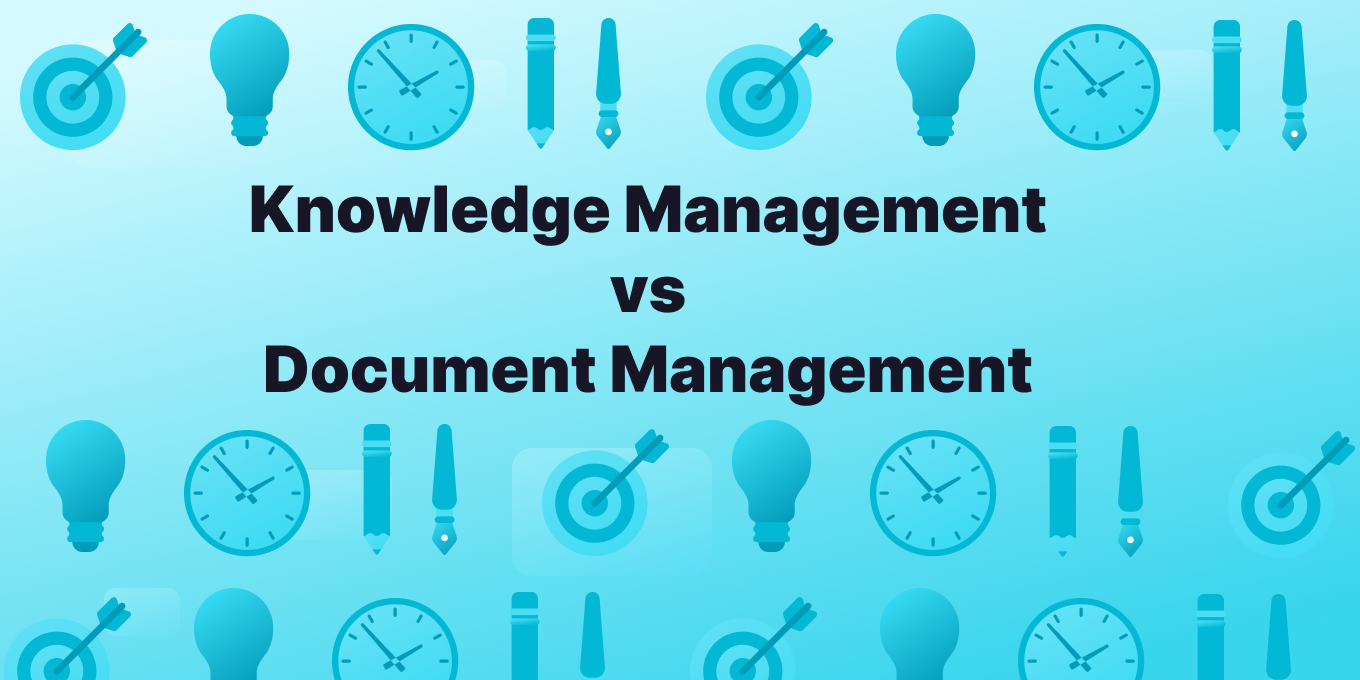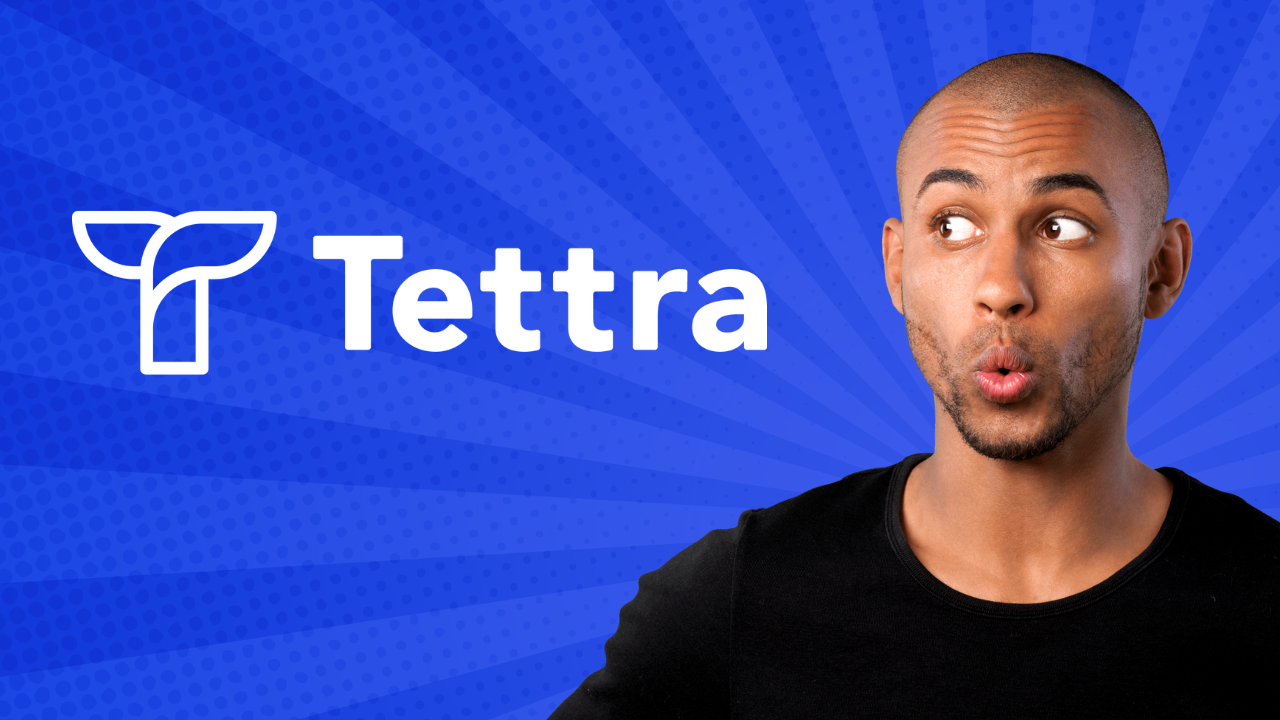TL;DR:
- Document management focuses on the logistical aspects of handling documents.
- Knowledge management leverages the knowledge that content/documents contain.
As businesses navigate through vast amounts of data, a distinction has to be made between knowledge management and document management.
In this article, you’ll see the definitions of each and what Tettra can do to help you.
The Role of Knowledge Management
Knowledge management is a strategic approach focusing on capturing, organizing, leveraging, and sharing an organization’s collective knowledge.
This includes both tacit knowledge, which encompasses unspoken insights and experiences, and explicit knowledge, which consists of documented facts and procedures.
- See more on the different types of knowledge
The importance of knowledge management lies in its ability to enhance performance, innovation, and decision-making within an organization.
Tettra, with its AI-driven capabilities, excels in this by facilitating the seamless documentation and dispersion of both tacit and explicit knowledge.
Those individual insights become more accessible, organizational assets.
The Role of Document Management
Contrasted to knowledge management, document management involves the systematic handling of documents within an organization, including their creation, storage, retrieval, and sharing.
It serves as the foundation for a centralized digital library, supports a wide array of file formats and ensures that essential records and archives are efficiently managed.
While document management is a critical component of knowledge management, document management focuses on the logistical aspects of handling documents and knowledge management leverages the knowledge those documents contain.
Knowledge Management with Tettra: An AI-Driven Approach
Tettra’s AI-powered knowledge management system significantly enhances organizational knowledge practices.
By automating the curation and verification of information, Tettra ensures that the knowledge base is always current and accurate.
Tettra’s features like Q&A workflows and expert designations help articulate and share the nuanced expertise that might otherwise remain within individual silos.
Principles of Knowledge Management
Effective knowledge management involves more than storing information; it’s about leveraging that knowledge for strategic advantage.
The basics of the knowledge management process are:
- Discover: what info is useful to the company’s goals, operations and bottomline?
- Capture: Gathering the information in its assets, like audio recordings, videos and transcripts, SOPs, and more
- Index: The collected knowledge will need to be transcribed, categorized and indexed for easy navigation and retrieval.
- Assess: Review the stored knowledge & validate the information is correct
- Distribute: Once the knowledge base is organized and vetted, it should be easy and convenient to access and share.
Tettra aids organizations in preserving expertise, fostering collaboration, and accelerating innovation. By offering a centralized platform for knowledge, Tettra enables informed decision-making and promotes a culture of continuous learning.
Enhancing Document Integrity with Version and Access Control
Tettra ensures document integrity through robust version control, guaranteeing access to the most current information. Its access control mechanisms safeguard sensitive information, highlighting Tettra’s comprehensive approach to knowledge and document management.
Distinguishing Knowledge from Documents
The fundamental difference between knowledge management and document management lies in their focus.
While document management is concerned with the efficient handling of documents, knowledge management, as enabled by Tettra, aims to capture and leverage the full spectrum of organizational knowledge.
This not only includes managing documents but also fostering a culture of shared intelligence and innovation.
The Strategic Value of Knowledge Management Systems
Knowledge management systems like Tettra are indispensable in today’s business landscape.
They transform how companies innovate, collaborate, and compete by leveraging intellectual capital. Understanding the nuances between knowledge management and document management enables organizations to appreciate the comprehensive solution Tettra offers, turning information into a strategic asset for sustainable success.
Creating a central source of truth for your company
If you feel like you have all the information and answers you need, but no great way to organize it, then it’s time to move into an internal knowledge base.
Take this case study from the team at Grandpad.
GrandPad needed a single source of truth for their entire company. As their infrastructure, tools, and client base grew, the team began to realize just how much information was getting lost in multiple silos.
While the Support team used Zendesk, Engineering used Confluence, and other teams used Google Docs or locally hosted files. This left the team feeling disconnected and lacking confidence that the internal documentation they were referencing was up to date and uniform between different departments.
“We needed to find a new knowledge base tool we could use for everybody and not just support,” their leadership said and chose Tettra to help.
The distinction between knowledge management and document management highlights the evolving needs of modern organizations in managing their information assets.
Tettra stands at the forefront of this, offering a platform that not only manages but also amplifies knowledge, ensuring that businesses are not merely efficient but are innovators in their field.
Through strategic knowledge management practices, companies can unlock the full potential of their intellectual assets, propelling themselves towards growth and competitive advantage in the digital age.
More on document and file sharing from Tettra
More from Tettra on Document Sharing and Files
- Best online document sharing platforms
- 16 Google Docs features you may not know about
- Best document management software solutions
Tettra’s Unique Value in Knowledge and Document Management
Tettra stands out for its intuitive, AI-powered platform designed to meet the dynamic needs of modern organizations. While there are several options available for businesses seeking to enhance their knowledge sharing and document management capabilities,
Tettra’s unique value proposition lies in its seamless integration, user-centric design, and advanced AI functionalities.
Integration and Workflow Synergy: Unlike many alternatives that require significant adjustments to existing workflows, Tettra is built to integrate effortlessly with the tools teams already use daily, such as Slack, Google Drive, and MS Teams. This means that adopting Tettra doesn’t disrupt existing processes; instead, it enhances them, making knowledge sharing a natural part of the workflow rather than a separate task.
User Experience: Tettra prioritizes a user-friendly interface that is accessible to all team members, regardless of their technical expertise. This inclusivity ensures that every team member can contribute to and benefit from the collective knowledge base, fostering a more collaborative and informed organizational culture.
Advanced AI and Automation: Tettra’s use of AI and machine learning technology sets it apart from many competitors. The platform’s AI-driven features automate the curation and verification of content, ensuring the knowledge base remains accurate and up-to-date. Moreover, AI-powered search and recommendation systems help users find the information they need quickly and efficiently, reducing time spent searching and increasing productivity.
Future-Proofing Organizations: Tettra is not just a solution for today’s challenges but also an investment in the future. With a roadmap that includes continuous enhancements and the addition of innovative features, Tettra is committed to evolving alongside its users’ needs. This forward-thinking approach ensures that organizations remain at the cutting edge of knowledge and document management.
By choosing Tettra, businesses are not just managing their information. They are transforming it into a dynamic, accessible, and secure resource that propels them towards growth and competitive advantage.


